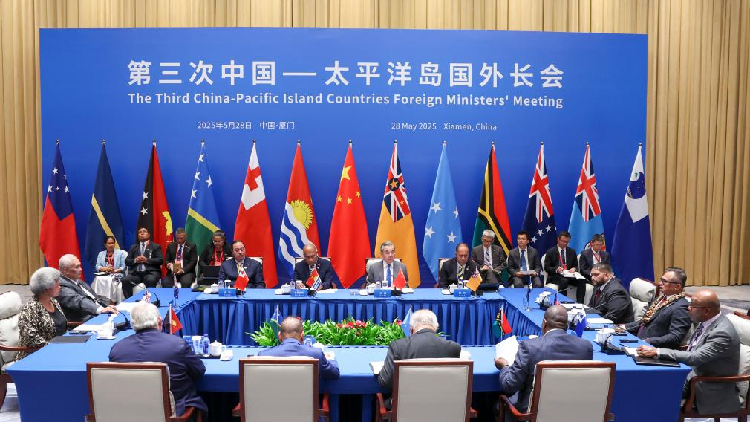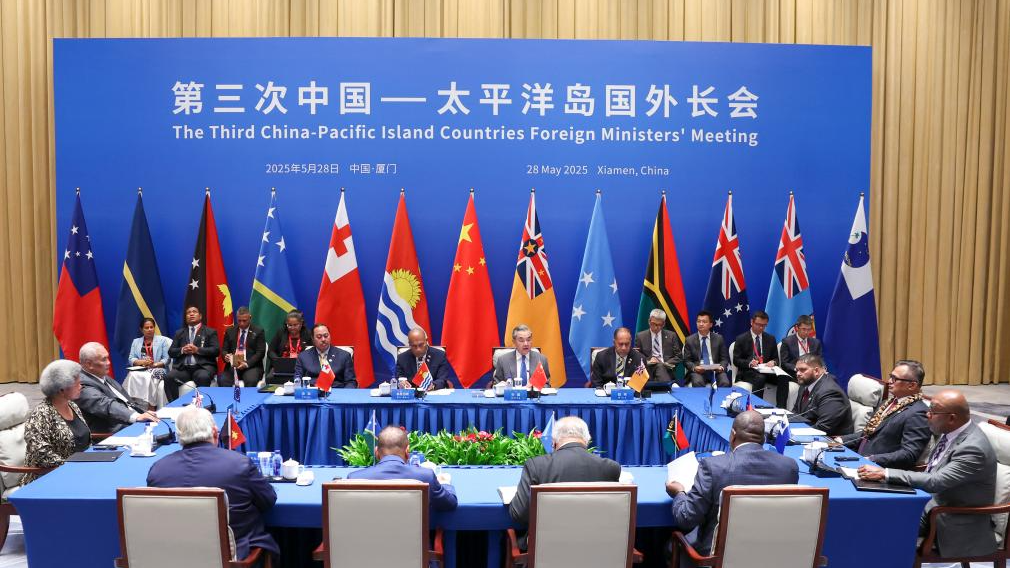Wang Yi Highlights Key Agreements from 3rd China-PICs Foreign Ministers' Meeting
China and Pacific Islands nations forge a five-pronged consensus at the Third China-PIC Foreign Ministers' Meeting.


Wang Yi, a member of the Political Bureau of the Communist Party of China Central Committee and Chinese foreign minister, announced that China and several Pacific Island Countries (PICs) have reached a broad five-point consensus at the conclusion of the Third China-Pacific Island Countries Foreign Ministers' Meeting, held on Wednesday in Xiamen, Fujian Province.
During a press conference alongside Kiribati's President and Foreign Minister Taneti Maamau, Wang underscored the results of in-depth discussions between China and the participating Pacific nations. The talks focused on expanding bilateral cooperation, as well as addressing pressing international and regional challenges. According to Wang, the meeting culminated in five key areas of agreement that are expected to shape future collaborations.
The first point reaffirms the principle of mutual respect and equality. Wang emphasized that China is steadfast in its view that "all countries, regardless of size, should be treated as equals." He expressed appreciation for the Pacific Island countries' clear support for the one-China policy and their backing of China's efforts to protect its sovereignty and territorial integrity. This mutual recognition is seen as a foundation for deeper diplomatic engagement.
The second consensus aims to boost shared development goals. Both sides agreed to synchronize China's high-quality Belt and Road Initiative with the "2050 Strategy for the Blue Pacific Continent," a long-term vision for the region's prosperity and environmental well-being. China has pledged to facilitate greater access to its vast market for Pacific Island exports, opening new opportunities for economic growth and sustainable development.
In the third area, the commitment to fairness and international justice was highlighted. As the United Nations approaches its 80th anniversary, both China and the PICs resolved to uphold multilateralism and safeguard the interests of developing countries within global institutions. This involves a unified stance to ensure their voices are heard and their rights protected on the world stage.
Openness and inclusivity form the basis of the fourth pillar of cooperation. Wang stressed that the international community must respect the autonomy of Pacific Island countries in selecting their development partners. He also called for prioritizing critical issues such as climate change, economic advancement, and improved living standards when engaging with the region.
Finally, both sides pledged to strengthen mutual learning and civilizational exchanges. Recognizing the value of both Chinese civilization and the unique maritime culture of the Pacific Islands, the meeting set forth plans to deepen educational, cultural, and media exchanges. This includes advancing the Global Civilization Initiative and fostering greater understanding between societies, contributing to the broader progress of human civilization.
The five-pronged agreement signals a deepening partnership between China and the Pacific Island countries, with leaders expressing optimism about new avenues for collaboration across economic, environmental, and cultural spheres.




